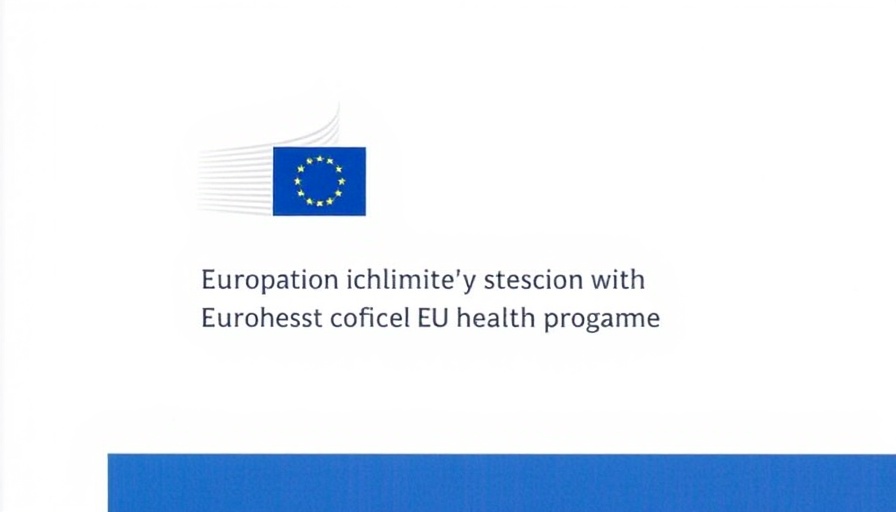
EU4Health: A Bold Response to Health Crises
On March 24, 2021, amid the throes of a global pandemic, the European Parliament and Council adopted Regulation (EU) 2021/522, launching the EU4Health Programme—a landmark initiative designed to fortify Europe's healthcare infrastructure. With a budget of €5.3 billion dedicated to health actions until 2027, this programme aims not only to respond to current health emergencies but also to bolster long-term health resilience across the region.
Transforming Health Systems for Future Resilience
The COVID-19 pandemic exposed significant weaknesses in national healthcare systems, highlighting the urgent need for collaborative approaches to public health challenges. EU4Health addresses these vulnerabilities by introducing four key objectives: crisis preparedness, disease prevention, enhancement of health systems, and the digital transformation of healthcare. These goals will promote better health outcomes through international cooperation and a unified response framework against cross-border health threats.
A Comprehensive Approach to Health: Key Goals
As part of its operations, EU4Health focuses on several critical areas:
- Disease Prevention: By investing in health promotion initiatives and bolstering vaccination campaigns, the programme aims to keep citizens protected from health risks.
- Strengthening Health Systems: The initiative enhances access to healthcare by supporting digital tools, improving data sharing, and fostering integrated healthcare models.
- Affordability of Medicinal Products: EU4Health strives to secure accessible and affordable medical supplies through innovation and sustainable practices.
Elevating Digital Health Initiatives
Digitalisation is a pivotal theme within EU4Health. The programme aims to leverage information and communication technologies to transform healthcare delivery. This means equipping healthcare providers with the tools needed to manage health data securely and efficiently, ultimately enhancing patient care. As Dr. Charles Alessi puts it, "The challenge is significant, but the prize is even greater as lessons need to be learnt and systems need to be more adept at managing the next pandemic." This focus on digital health aligns with broader societal trends towards integrated and personalized care.
Conclusion: Building a Healthier Future Together
In conclusion, the EU4Health Programme isn't just a response to the pandemic; it’s a significant step towards a more resilient and cohesive European Health Union. By pooling resources, sharing knowledge, and investing in innovative health solutions, Europe aims to create a health system that is not only robust in times of crisis but also progressive in improving public health.
 Add Row
Add Row  Add
Add 




Write A Comment